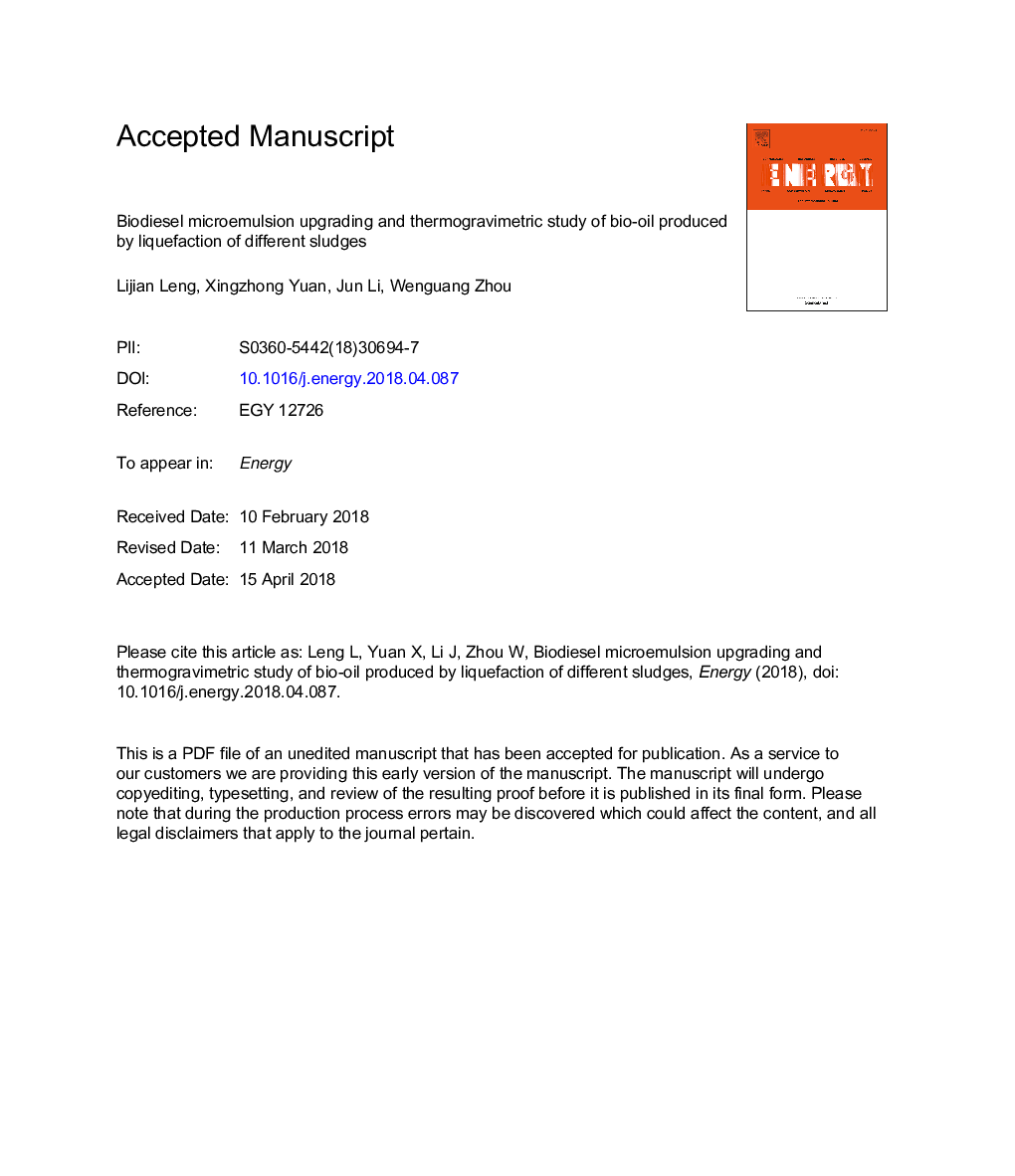| کد مقاله | کد نشریه | سال انتشار | مقاله انگلیسی | نسخه تمام متن |
|---|---|---|---|---|
| 8071624 | 1521397 | 2018 | 38 صفحه PDF | دانلود رایگان |
عنوان انگلیسی مقاله ISI
Biodiesel microemulsion upgrading and thermogravimetric study of bio-oil produced by liquefaction of different sludges
ترجمه فارسی عنوان
به روز رسانی میکرومولسیون بیودیزل و بررسی ترموگرافی سنجی روغن زیتون تولید شده توسط مایع سازی لجن های مختلف
دانلود مقاله + سفارش ترجمه
دانلود مقاله ISI انگلیسی
رایگان برای ایرانیان
کلمات کلیدی
لجن، روغن زیتون، تبدیل به مایع، میکرو امولسیون، بیودیزل، ترموگرویمتریک،
موضوعات مرتبط
مهندسی و علوم پایه
مهندسی انرژی
انرژی (عمومی)
چکیده انگلیسی
Different sludges such as municipal sewage sludge, paper/pulp mill sludge, and slaughterhouse sludge were collected and characterized for energy production. Bio-oils were produced from these sludges by supercritical liquefaction at 300â¯Â°C with methanol as the solvent. Carbon-rich and viscous bio-oils with yields about 20-30% were obtained. With methyl esters as the dominant component, these bio-oils were upgraded by blending or microemulsifying with biodiesel (fatty acid methyl esters). The optimum microemulsions were formed at biodiesel/bio-oil ratio of 10, with bio-oil content of more than 8% (which doubled that obtained by blending) and surfactant effectiveness of 0.5-0.6â¯g rhamnolipid/g bio-oil being obtained. The thermogravimetric studies show that the blending and microemulsifying processes led to the shift of decomposition range and rate to higher levels and the reduction of activation energy of the hybrid fuel systems. There may be synergies of enhancing the combustion or ignition of microemulsions when biodiesel and bio-oil were used in combination in diesel engines, overcoming the disadvantages of using either biodiesel (e.g., long ignition delay, etc.) or bio-oil (e.g., long ignition delay and viscosity, etc.) individually. Microemulsification may be a promising bio-oil upgrading technology.
ناشر
Database: Elsevier - ScienceDirect (ساینس دایرکت)
Journal: Energy - Volume 153, 15 June 2018, Pages 1061-1072
Journal: Energy - Volume 153, 15 June 2018, Pages 1061-1072
نویسندگان
Lijian Leng, Pei Han, Xingzhong Yuan, Jun Li, Wenguang Zhou,
